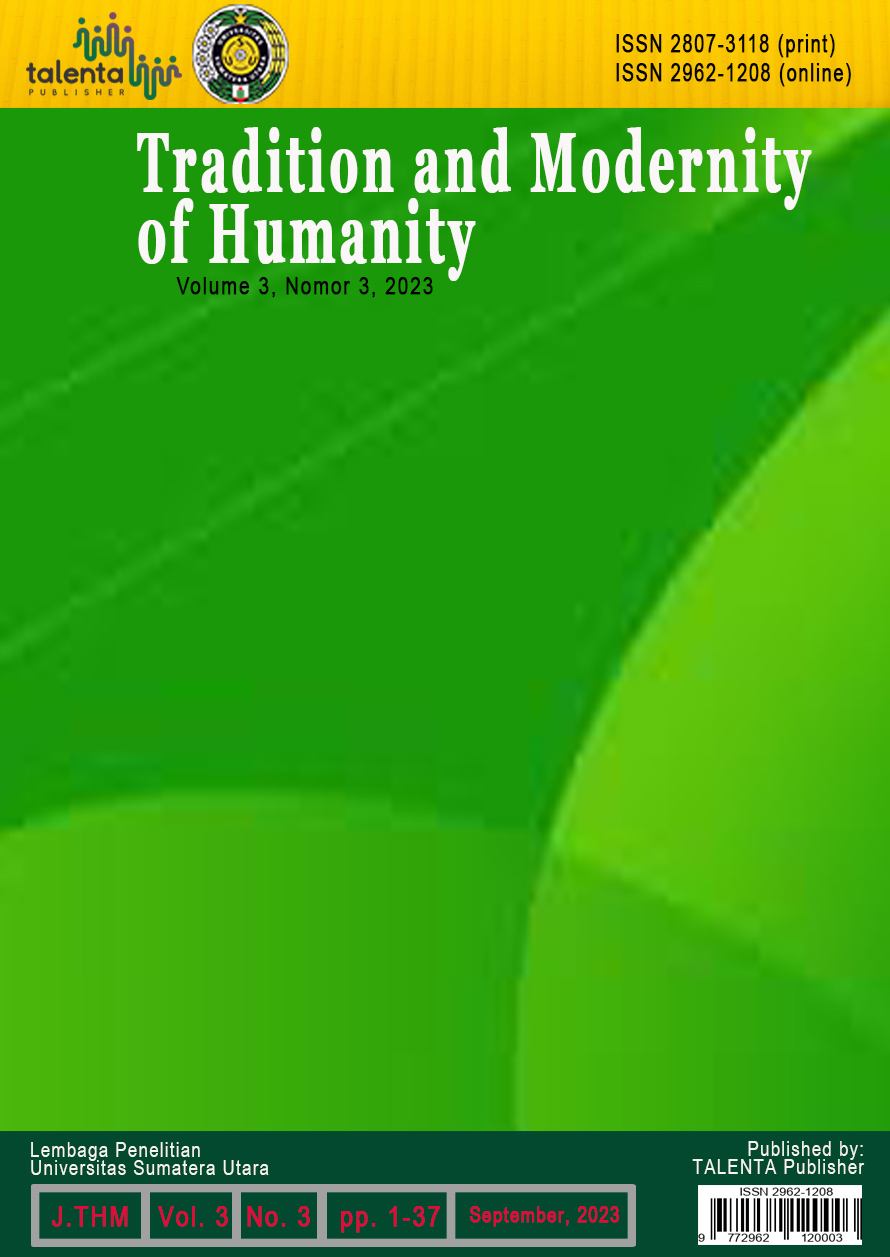Multilingualism as The Cause of Teochew Dialect Extinction in Medan
Keywords:
Teochew, Multilingualism, Sociolinguistics, Dialect extinctionAbstract
The title of this article is "The Role of Multilingualism in the Decline of the Teochew Dialect in Medan." The present study is grounded on the theoretical framework of Sociolinguistics, which encompasses the examination of language characteristics, variations, and functions, as well as the analysis of language usage within social interactions. The objective of this study is to provide an overview of the social context of the Teochew community in Medan, with a specific focus on the Teochew dialect. The employed research methodology is qualitative in nature. The terms "data collection method" and "technique used" pertain to the approach employed for gathering information, as well as the skillful manner in which it is recorded and documented. The Chinese population residing in Medan is recognised for their multilingual abilities, as they are proficient in speaking multiple languages. These languages include Bahasa Indonesia, which serves as the national language of Indonesia; Hokkien, a dialect commonly used for communication in Medan; their respective mother tongues, employed for intrafamilial and intraethnic interactions (Teochew, Hakka, Cantonese, Hailufeng, Hokchiu, Henghua, and Hainan); Mandarin, spoken by a subset of the Chinese community; and English, acquired as a global language of instruction. As a result of their multilingualism, individuals of Chinese descent, particularly those from the Teochew community, have a tendency to incorporate elements of their native language into their everyday speech. Consequently, a significant proportion of individuals progressively lose proficiency in and cease to utilise their native language over the 4.0 period, leading to the endangerment of the Teochew Chinese dialect in Medan.
The title of this article is "The Role of Multilingualism in the Decline of the Teochew Dialect in Medan." The present study is grounded on the theoretical framework of Sociolinguistics, which encompasses the examination of language characteristics, variations, and functions, as well as the analysis of language usage within social interactions. The objective of this study is to provide an overview of the social context of the Teochew community in Medan, with a specific focus on the Teochew dialect. The employed research methodology is qualitative in nature. The terms "data collection method" and "technique used" pertain to the approach employed for gathering information, as well as the skillful manner in which it is recorded and documented. The Chinese population residing in Medan is recognised for their multilingual abilities, as they are proficient in speaking multiple languages. These languages include Bahasa Indonesia, which serves as the national language of Indonesia; Hokkien, a dialect commonly used for communication in Medan; their respective mother tongues, employed for intrafamilial and intraethnic interactions (Teochew, Hakka, Cantonese, Hailufeng, Hokchiu, Henghua, and Hainan); Mandarin, spoken by a subset of the Chinese community; and English, acquired as a global language of instruction. As a result of their multilingualism, individuals of Chinese descent, particularly those from the Teochew community, have a tendency to incorporate elements of their native language into their everyday speech. Consequently, a significant proportion of individuals progressively lose proficiency in and cease to utilise their native language over the 4.0 period, leading to the endangerment of the Teochew Chinese dialect in Medan.
Downloads
Downloads
Published
Issue
Section
License

This work is licensed under a Creative Commons Attribution-ShareAlike 4.0 International License.






